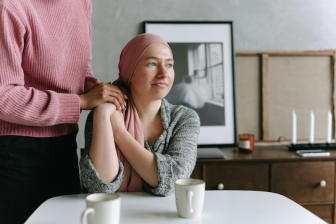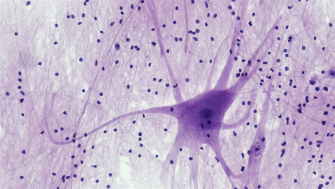Going mobile - making healthcare more patient focused
Last updated: 01 November 2019
You can legally access new medicines, even if they are not approved in your country.
Learn howOpinion Piece
Mobile phones not only help us stay connected, they are also powerful tools that connect wearable devices like monitors or sensors. Tracking personal health, exercise, sugar levels, and sleep patterns are just some uses of mobile. The technology has the potential to help make healthcare more tailored to the patient and improve the development of new therapies. Pharmaceutical companies have been slow to adopt new ways to improve patient-centricity, but lately they have made steps forward.
My name is Laura Manca and I'm everyone.org's Products Portfolio Manager and Innovation Advocate. everyone.org's mission is to redefine healthcare by putting patients' needs at the heart of everything we do.
Last month in London, the mHealth for Clinical Trials conference gathered together innovators from the medical world to discuss how mobile technology can be used to improve the development of new medicines. The goal: map out ways to improve the research of new medicines.
A study from 2016 highlights that patient enrollment, data collection, and communication with caregivers are among the most frequently reported challenges in clinical trials. Mobile technologies might well be the right answer. For instance, clinical trials are difficult to access for patients who live in rural areas or small towns. Even more difficult, is to visit the research site a couple of times per month. Remote 'check-ups' powered by mobile technology could help solve this.
One potential benefit is that by using an app, participants in clinical trials can quickly report any adverse effects and report progress easily. Devices such as wearables (like a smartwatch) allow doctors to remotely monitor the heart rate and temperature of every patient. All this data can be collected and reviewed automatically.
Mobiles can act as location beacons, telling medical staff exactly where patients are - which is helpful for emergencies. Moreover, it can happen that patients die during a clinical trial, and there is a pressure to understand exactly what caused each death. Here mobile tech could help.
Wearables and other mobile tools however, introduce a big source of variability which makes clinical trials and data analysis more complex. Given the stringent assessments for trials of new medicines, this may also cause additional authorisation delays. The question is: how can researchers trust that identical devices provide the identical feedback and results? Any variance, no matter how small, has a big impact in clinical trials.
One barrier to global use is that unfortunately pharmaceutical companies tend to work independently. At the mHealth conference I was surprised by the open discussions and willingness of big pharma to share their results. However, that might not be enough. Innovative services like ours could also step in to help ensure patients are not left behind, but that is not the ideal way.
Mobile is helping patients now and is helping accelerate medical advances for the future. But there needs to be a new focus on collaboration and putting people first. Pharmaceutical companies need to share their insights and successes - because in the end our goal is to care for the health of others. Let's not lose sight of this.




